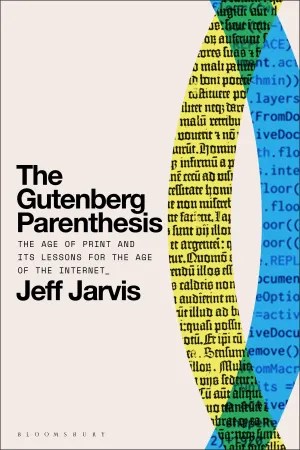The world’s leaders are asking you to tell them what to do. This YouTube video from the World Economic Forum at Davos asks, “What one thing do you think that countries, companies or individuals must do to make the world a better place in 2008?” Starting now, they’re also asking you to vote on the responses you like best (as of now, there are 60 to see). They will be shown at the annual meeting of machers in the Swiss Alps, starting January 23, and the machers are suppose to respond back at a YouTube booth at the conference.
I was lucky enough to go to Davos last year and I’m lucky enough to go again this year. How can you pass down the chance to hobnob with everyone from Bill Gates to Gordon Brown to Chad Hurley to Mark Zuckerberg with more political, business, and media machers mixed in? I was also privileged to work on the Davos Conversation project last year and this video effort is an extension of that. The conversation expands.
When the folks at WEF first talked with me about extending the conversation that occurs at their annual meeting outside the cloistered confines of the charming dorf of Davos, they admitted some nervousness. These echelons aren’t accustomed to conversation. But the WEF folks were smart enough to want to teach the powerful there that the internet age is all about conversation. So it started with steps. The Davos Conversation page (disclosure: built by Daylife) included blog posts from bloggers there as well as Technorati links to others from elsewhere who joined the conversation, plus some videos we took. (Here are Arianna Huffington and me at the end; here‘s my video of YouTube’s Chad Hurley announcing his revenue sharing program.) I wandered around with my little camera shooting video and not even knowing that that itself was breaking a few rules. But the castles didn’t tumble and so the conversation continues and grows.
That’s why Davos is involving YouTube and the world in trying to extend this via video. There’ll be a booth on the main floor of the conference center where the powerful can record a message to the world — “Hey, YouTubers” — or a response to your messages. Blogging continues with some new guests (Michael Arrington of TechCrunch is joining this year and I know they were trying to get a few more unexpected participants). And Reuters is extending its mojo (mobile journalism) project by equipping some of the participants with their kits (I weaseled my way into this one!) to chronicle the meeting in text, photos, audio, and video.
To join this conversation, just use the Davos08 tag wherever you put up blog posts or videos or respond to the Davos invitation here.
Here’s one reply to the Davos question, arguing for technology to spread education:
This reply takes only eight second and makes sense:
This gumchewer says the single thing that would improve the world would be universal internet access: free wi-fi for all:
Here’s a guy who wants to use YouTube to actually spread knowledge:
This Canadian wants product labels revealing the impact of the products we buy on the world:
Here’s a sermon on the mount of YouTube:










I’m not sure I can take the gum chewer very seriously.
It’s an interesting question though to ask and I think for me it comes down to a single point: That the world’s problems lie more in the fact that as we progress through independence and secularism, our motivation for caring for those around us is diminishing as our certain desperation for making our own lives better increases. I’m certainly not arguing that independence is bad, but just look at the US. We have become a very wealthy nation where our freedoms are certainly in excess, however our willingness to help a neighbor in their time of need is countered either by how inconvenient it is to how much it will cost us in the end, and that’s not just monetarily. I think many times we’d rather the government do it even if we have to pay a little more tax to make it happen. In fact in many cases we don’t even know our neighbors, which makes this type of lifestyle all the easier.
Of course, this is a tough issue to address. In fact it is certainly easier to note the problem than to come up with an effective solution. But somehow we have to find a way to encourage the idea of community on the local level to deal with this issue. And I believe if we do then we can start to deal with the more technicolor issues like poverty.
“The world’s leaders are asking you to tell them what to do.”
I’ve got an idea. Why don’t they just stay home? Who needs a bunch of mostly unelected elitists figuring out for themselves what’s good for the rest of us, with solutions that almost always involve increased centralized government power and loss of national sovereignty. The lack of self-consciousness of these elitists is truly remarkable. Note that virtually every one of the issues in the video comes from the left side of the political spectrum. If such a conference focused on the right side, we’d no doubt be hearing conspiracy theories about how the Rockefellers, Bildebergers, and clandestine groups are trying to take over the world. And, rightly so. Social computing has now empowered the people to debate issues and organize themselves. If they really cared about “the people” instead of telling the people how to run their lives and how they would rule the world, they wouldn’t be wasting their carbon footprints on such an exercise of vanity. (Steve Boriss, The Future of News)
Hmmm, what I see here are the world’s elites blabbing about technology because they already know how to read and write, do math. They have educated parents, jobs, etc.
Giving everyone access to wi-fi won’t do anything to help a highly impoverished kid in Newark. There’s a lot more to education than handing a kid internet access and walking away.
A bunch of white guys suggesting on video clips how to change the world. Big deal.
Lacking a web cam (or any digital cam, for that matter) I can’t respond…but I would hope that SOMEONE would reply: “Keep government separate from religion and restrict the clerics to where they belong: the mosques, the churches, the synogogues and the temples…NOT in governmental policy discussions.”
I thought we already had democracy for stuff like this. Why don’t the leaders go home and make sure their electoral systems work instead?
And give the UN the funds and authority it needs.
A pseudo conversation in the form of YouTube anecdotes, from people like us, isn’t that interesting.
Oh fer chrissake, not Davos again. All the hot air generated there is what’s causing global warming.